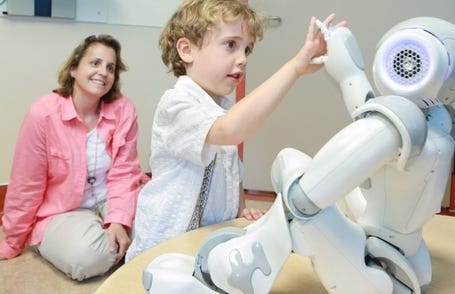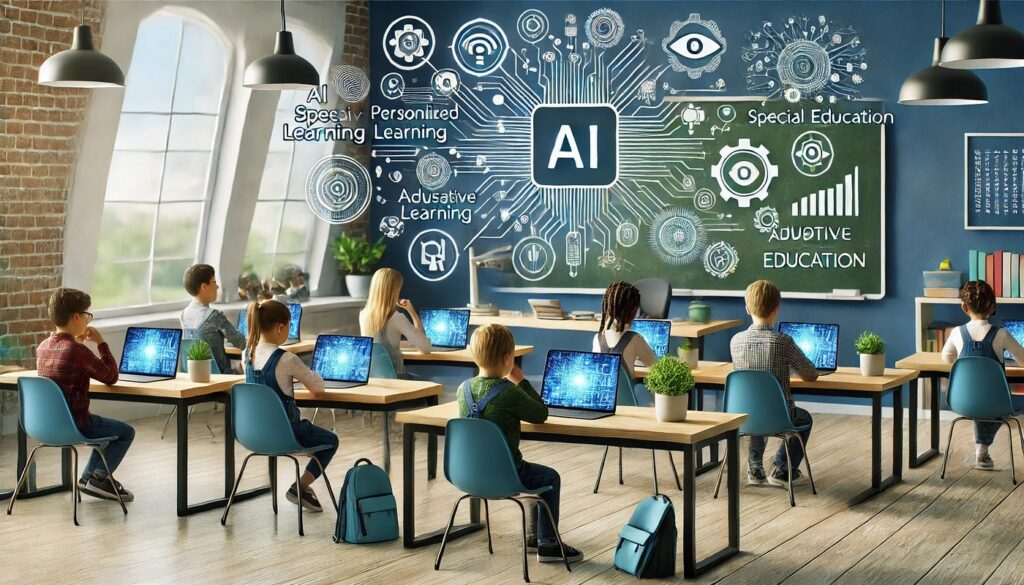At the 15th Annual Autism Conference, convened by Guaranty Trust Holding Company Plc (GTCO), advocates, educators, and tech leaders rallied behind a transformative message: AI adoption in autism education is no longer optional—it’s essential. With classrooms overcrowded and resources limited, artificial intelligence offers a breakthrough path for personalised learning tailored to children on the autism spectrum, especially in underserved Nigerian communities.
Table of Contents

Addressing Critical Gaps in Autism Support
During the conference, Oyeyemi Patricia Adako, Executive Director of the Education for Autism Initiative, delivered the keynote address titled “Unlocking Silent Potentials: Harnessing AI to Transform Autism Education.” She highlighted the challenges facing autistic learners: large class sizes, rigid curricula, and a lack of trained educators—all contributing to them being left behind in typical educational settings.
“AI has the potential to become the key for millions of neurodiverse learners, especially in communities where access to specialised support is limited,” Adako said, underscoring the transformative impact of tailored digital tools.
Drawing an uplifting parallel with Helen Keller’s story, she remarked, “Just as Anne Sullivan’s dedication unlocked Keller’s world, AI could unlock each autistic child’s unique strengths. Education must not be one-size-fits-all”—a potent reminder that each learner is distinctive.
A Catalytic Platform for Inclusion
Now is the time, Adako argued, for Nigerian developers and civic leaders to build assistive technologies that resonate with local realities—tools that understand cultural nuances and work in low-connectivity environments.
“What if every teacher had access to one such tool?” she mused. “What if parents could use it at home? This isn’t simply about gadgets—it’s about empowering learners through inclusion”
Confronting Structural Hurdles
Yet, Adako did not shy away from exposing the challenges. Many regions in Nigeria still struggle with:
- High costs of acquiring and maintaining AI-powered systems
- Lack of infrastructure, including reliable internet and electricity
- Insufficient teacher training, limiting effective integration
To overcome these barriers, she offered practical steps:
- Pilot affordable, offline AI tools in after‑school centres
- Train at least one local teacher or caregiver per community
- Adopt devices that work offline or with intermittent connectivity
- Push public–private partnerships, especially through funding research and local development
- Equip teacher‑training institutions with technology and support
- Champion policies that incentivise homegrown solutions.
Her blueprint positions AI not as an elitist luxury, but as a fundamental educational right:
“AI can help us see the learner, not just the diagnosis. Inclusive technology is not a luxury; it is a right.”
Corporate Commitment with GTCO
The conference opened with remarks from GTCO CEO Segun Agbaje, who reaffirmed the organisation’s commitment to autism inclusion:
“What started as a simple but focused effort has grown into a movement … this year’s theme challenges us to do more to move beyond awareness and truly empower individuals on the autism spectrum.”
Since 2009, GTCO’s Orange Ribbon Initiative has provided consultation, therapy, training, and awareness. The conference marks the next strategic phase—moving from awareness to action.

International Perspectives and Best Practices
The conference attracted diverse voices with global experience:
- Georgiana Koyama, founder of UK-based All Behaviour Consultancy, emphasised the need for psychologically safe, dignity-centred systems: “True inclusion starts with psychological safety. We must build environments where children are not only supported but also seen, heard, and valued.”
- Camiella Hay, Director of ABA Services at Owen Health Care (New Jersey, USA), advocated for solutions rooted in local contexts but inspired by international best practices: “Autism is not a one-size-fits-all condition. What works in one region may not work in another. We must build solutions that are both globally informed and locally grounded.”
Why AI Matters for Autism Education
1. Adaptive Learning at Scale
AI systems can dynamically adjust difficulty and pacing, matching each child’s capabilities. This ensures learners receive exactly what they need, when they need it.
2. Data-Driven Insights
AI can continuously collect and analyse data on learners’ performance—something manual trackers struggle to achieve. This supports more informed decisions by educators and therapists.
3. Relieving Teacher Burden
Large classes and limited training exhaust teachers. AI tools can aid with lesson planning, real-time feedback, and communication with students—allowing educators to focus where they add most value.
4. Culturally Relevant Tools
Tools built locally are more likely to reflect language, customs, and environment—making them more effective and acceptable to users compared to foreign one-size-fits-all solutions.
A Holistic Vision: Ethics, Collaboration, Sustainability
Experts at the event advocated for an ethical, inclusive, and sustainable approach to technology:
- Use offline-capable devices in regions with unreliable internet
- Train teacher champions in each community to lead adoption
- Foster public–private partnerships for funding and scale
- Support local research to design systems that fit Nigeria’s context
- Embed ethical safeguards, ensuring learner data privacy and consent
The aim is an ecosystem where schools, families, tech providers, and policymakers work together—ensuring solutions are ethical, accessible, and durable.

Looking Ahead: From Pilot to Policy
To keep the momentum:
- Pilot projects demonstrating impact could be deployed through NGOs and schools.
- In parallel, evidence from pilots can inform national policies and teacher curriculum.
- GTCO and partners can act as platforms for collaboration, linking technology firms, research institutions, and educators.
- Developing open-source toolkits ensures solutions are scalable and affordable.
- The final goal: full system adoption across regions, ensuring all children with autism—especially in rural or underserved communities—gain equal access to education.
A Pathway to Inclusive Education
The call at Lagos was clear and compelling: “AI adoption in autism education” is both necessary and urgent. As Adako declared:
“Inclusive technology is not a luxury; it is a right.”
AI offers a scalable, adaptive, and data-driven way to meet each learner’s individual needs. With bold leadership, ethical design, and practical planning, stakeholders in Nigeria—and across Africa—can pioneer a future where technology becomes the key to unlocking every child’s potential.
Join Our Social Media Channels:
WhatsApp: NaijaEyes
Facebook: NaijaEyes
Twitter: NaijaEyes
Instagram: NaijaEyes
TikTok: NaijaEyes








































